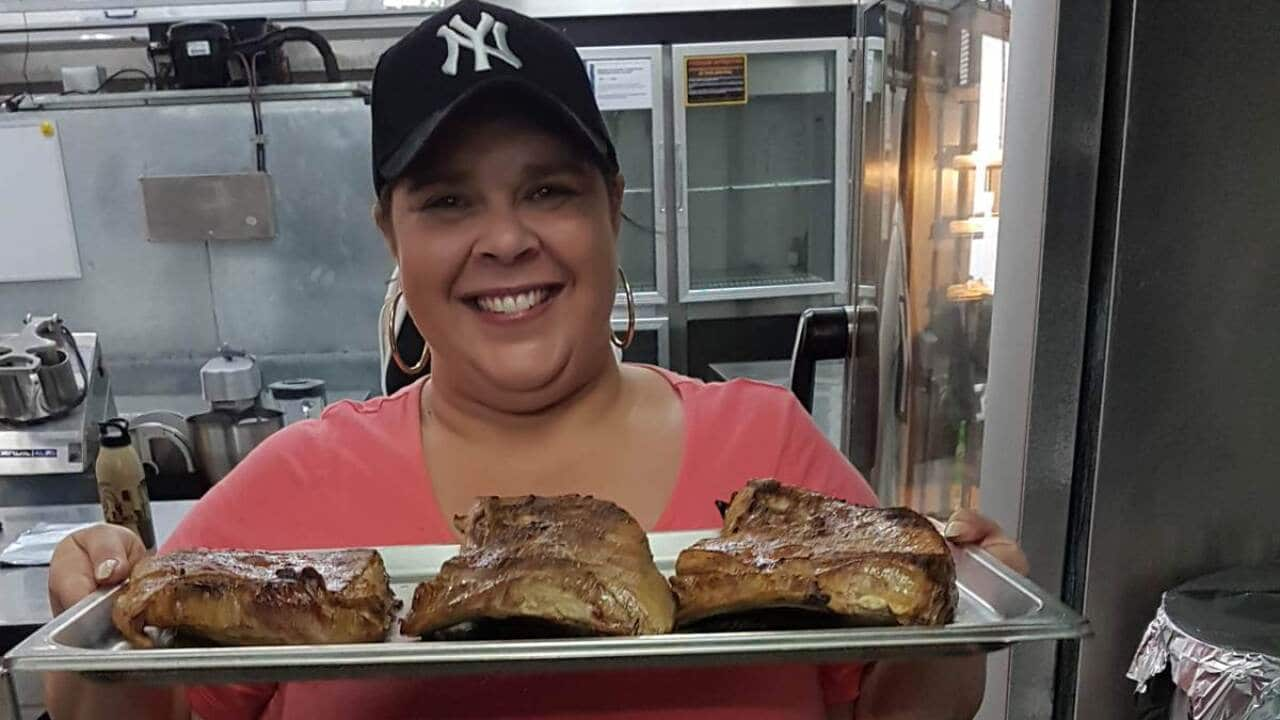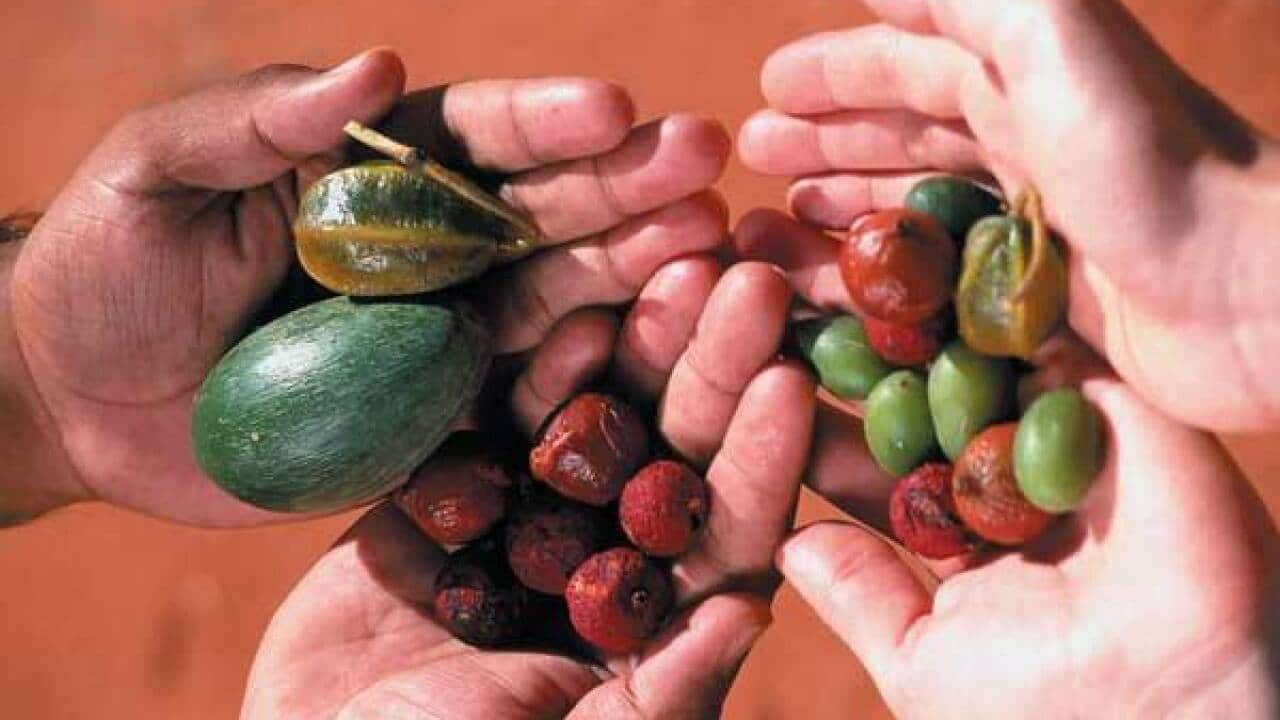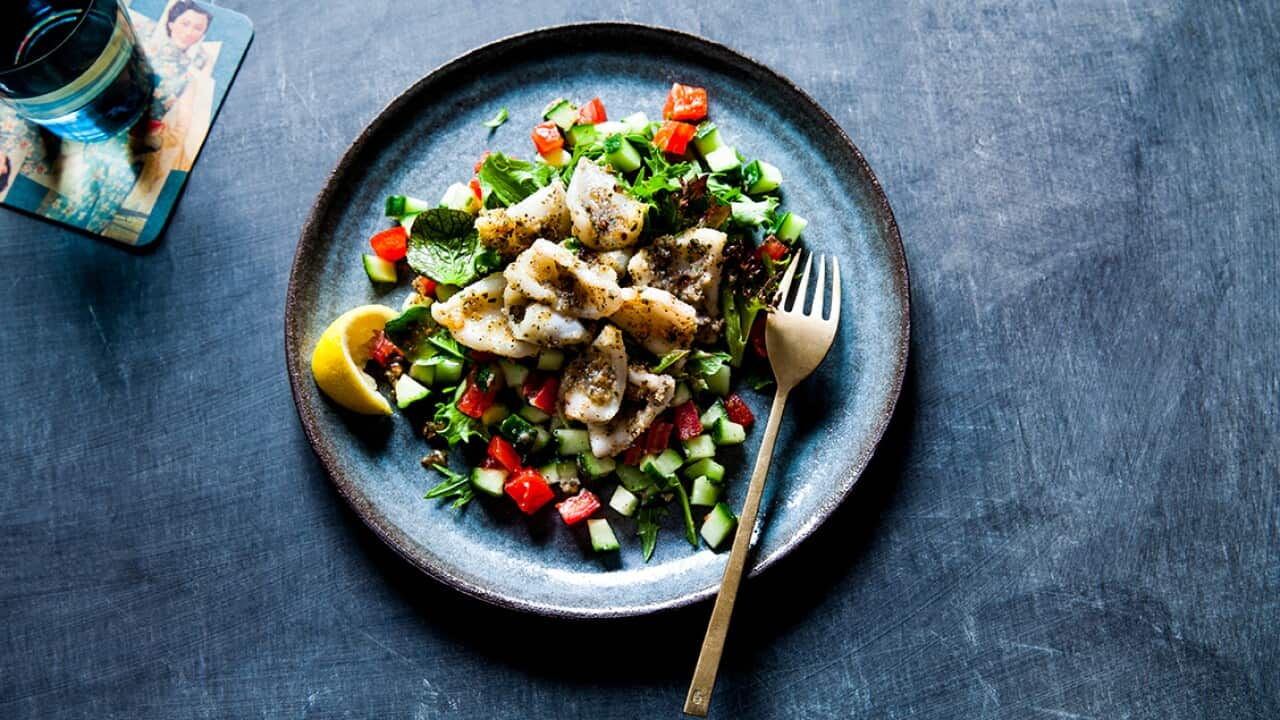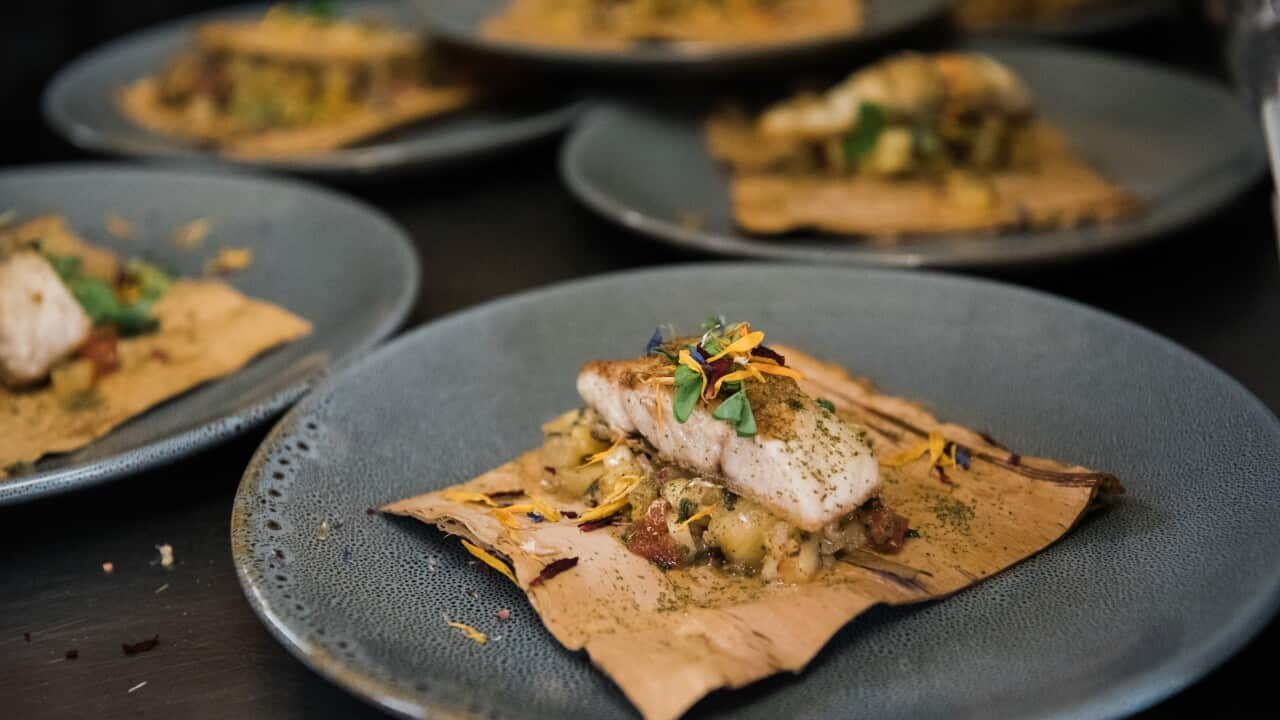NAIDOC Week is a national celebration of Aboriginal and Torres Strait Islander peoples, history and culture, and runs from July 3-10. Join the conversation #NAIDOC2022
As the National NAIDOC Principal Media Partner and official Education Partner, National NAIDOC Week will be celebrated across all SBS channels and platforms, including an exclusive NAIDOC collection of series and films available to stream on SBS On Demand and NAIDOC education resources via .
There's a trick to cracking open a boab nut.
It's something has mastered – he grew up surrounded by thousands of boab trees in Western Australia's Kimberley region. The Nyul Nyul man remembers being five years old, living in Broome, and collecting the nuts during the cooler months.
"Sometimes we climb up the trees, but usually we use a big rock or stick to hit them down," says Dann, who currently runs , a business that specialises in iced teas, ginger beer and other products made with this bush food.
"I hit it on the ground or we open it by throwing rocks at it," he says. And that's how you open a boab nut.
"You break it off the shell and it's just a white ball in your hand. You can eat it straight away."
He describes the white fruit as having a sweet, citrus buzz. "It's got a sherbet taste, but a lemon hit to it as well."
Dann recalls hauling his boab bounty home and mixing the ingredient with sugar. "We'd have it like a porridge or we can make your own drinks from it."
The nut is easier to split open than its African equivalent ("you've got to hit it with a hammer to break it," he says of the other kind of boab) and this childhood staple has created many opportunities for Dann.
He started Bindam Mie (pronounced Bindam May) in 2017 while running his tourism business, . He'd serve his guests iced boab tea during tours, and their enthusiastic response made him think there'd be a promising market for boab-flavoured beverages and other products.
Nowadays, he doesn't use a stick to shake the boab nuts from the trees – he's bought proper pickers from Bunnings Warehouse that stretch over two metres long. He also employs Indigenous youths to help him harvest and process the nuts. "So the kids are catching it, breaking it open, putting the shell around the tree and smashing it," he says. "They're putting everything in the bag and that's it."
Dann's Bindam Mie range has been in the media spotlight, but he also credits the Australian Research Council's Training Centre for the initiative, run by , for also amplifying his profile.
Dann heard about this project via his cousin Bruno Dann, who sells wild-harvested gubinge (Kakadu plum) through his business. "That was the first time I got to know Uniquely Australian [Foods]," says the Bindam Mie operator.
ABOUT AUSTRALIA'S GUBINGE

Kakadu plum: The story of this Indigenous Australian superfood
This University of Queensland project aims to raise the profile of native ingredients – and the Indigenous communities behind them – by exploring their potential in ways that benefit First Nations people.
Deputy director , says, "[We're] training the next generation of leaders and researchers in this field." The centre hopes to develop native foods "so that new businesses can be generated and established in communities, on Country, which gives meaningful employment for Aboriginal people".
Smyth points to macadamia, Kakadu plum and lemon myrtle as bush foods that have generated profits for overseas businesses – yet of Indigenous food enterprises are owned by First Nations people. "Other people have made money out of it and Indigenous communities have missed out," she says.
"A real driver of the project [is] to make sure we don't lose the next macadamia nut, we don't lose the next lemon myrtle," adds Smyth.
Dann has engaged with Uniquely Australian Foods to analyse the nutritional profile of his boab ingredient. "It has 10 times the vitamin C of an orange," he says. The centre's research shows that the boab – which he sells in powder, drink and syrup form – is a nutritional powerhouse that also happens to be gluten-free. This helps him publicise his products and "get it into markets where other powders can not," he says.
A real driver of the project [is] to make sure we don't lose the next macadamia nut, we don't lose the next lemon myrtle.
By raising the profile of Bindam Mie (and its health benefits), the project has helped open doors for Dann. "Uniquely Australian Foods brings those investors into the meetings," says the entrepreneur, who is also part of the centre's .
Uniquely Australian Foods currently highlights the potential of many native ingredients around Australia: green plums in the Northern Territory that resemble mango and are high in folate, Tasmanian pepperberries that could extend the shelf life of meat and other foods, wattleseed from central Australia that could be malted, sprouted, roasted and ground in different ways.
Then there's the impressive potential of native seaweeds. Smyth asks, "How do we process the seaweed into a format that can, I guess, substitute flour in bread or pasta and become a more sustainable ingredient?
"It takes carbon out of the atmosphere, it's much more environmentally sustainable than growing wheat and the protein from the seaweed is actually really high quality."
That's something that student Saskia Urlass is researching with Dr Pia Winberg from .
The centre collaborates with a range of students on their projects, from agribusiness experts to lawyers. Student Selina Fye has spent years working with Aboriginal communities on the promising nutritional properties of green plums, which are eaten as ripe fruit, but can be consumed after they dry up like raisins on trees. It'll be years before you can add these plums to your shopping basket, as their short shelf life is a challenge that still needs to be resolved. Perhaps you'll see them as a paste or juice on a supermarket shelf one day?
Student Sera Susan Jacob has been experimenting with countless types of wattleseeds and the centre's research into this bush ingredient has already paid off. Their collaborations with has led to the Qantas Club Lounge in Darwin serving the caterer's wattleseed bread. Smyth might be biased, but she claims it is excellent, served hot with butter.
"When you have these products on Country, it's very hard to bring the chemistry lab to them," she says, so Uniquely Australian Foods' has developed a portable chemistry kit, which helps locals study the health benefits of foods that – despite being around for thousands of years – have yet to appear in grocers or shop displays.
The number of Indigenous students or teachers that come up and say: 'I'm an Indigenous person, I've never tasted this before, but to be here and hear you talk about it, I'm filled with such pride.
By highlighting the promise of native ingredients, Uniquely Australian Foods can score many goals: it can create economic opportunities for Indigenous businesses, increase the biodiversity of our diets, and show the sustainable upsides of using wild-harvested bush foods that don't require intensive farming and water usage.
However, Smyth says the cultural rewards might be the most meaningful – particularly when students visit schools and explain their work to kids.
"The number of Indigenous students or teachers that come up and say: 'I'm an Indigenous person, I've never tasted this before, but to be here and hear you talk about it, I'm filled with such pride. I'm so happy and proud, this is delicious. I didn't know that this is what my ancestors were eating. I can sit here… and think, 'this is my mob's food. They're talking about my people'."
THE BEAUTY OF BUSH FOOD

Why this proud Ualarai Barkandji woman educates others about bush food








